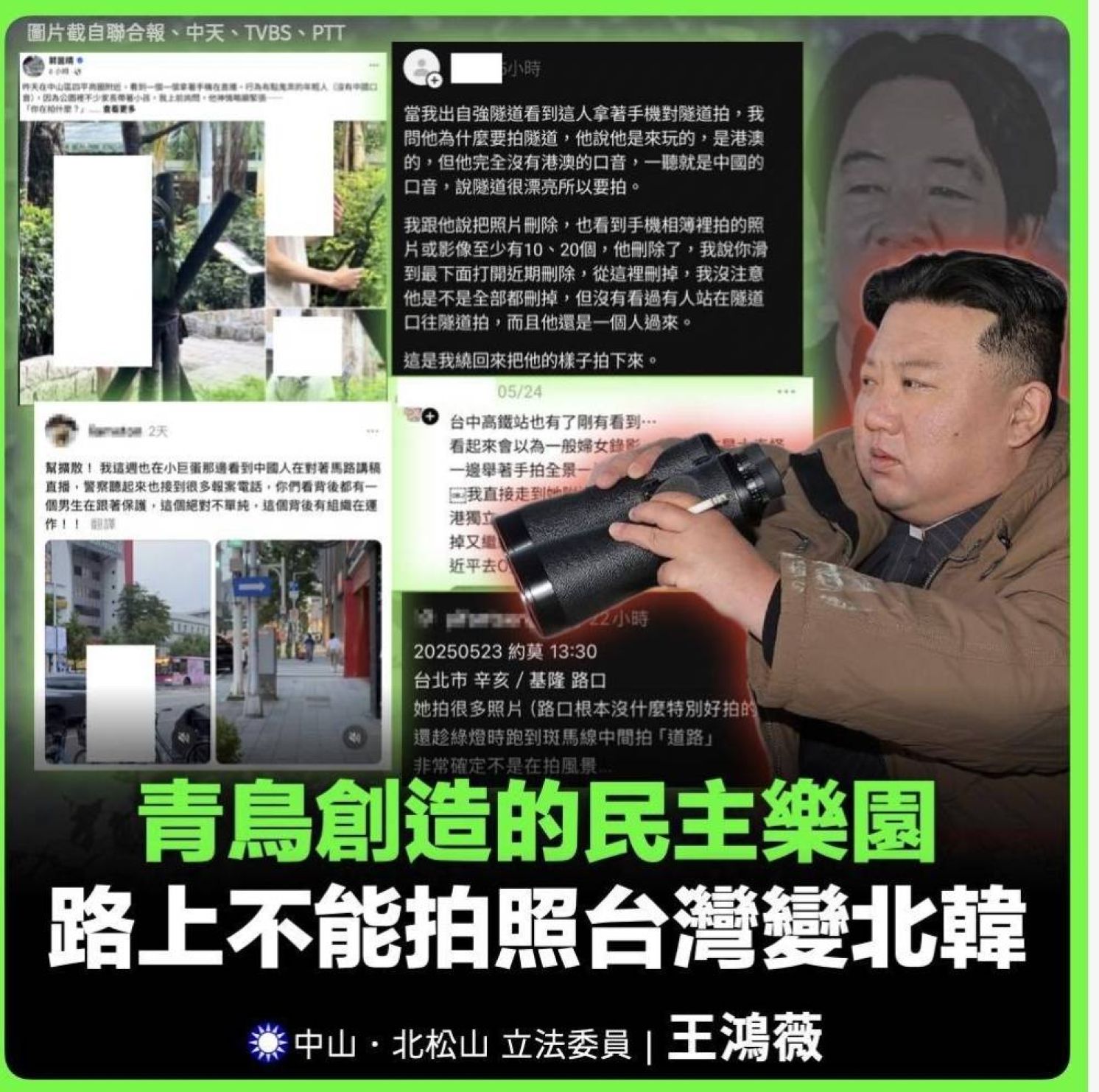
Who is Responsible for Witch-Hunt Atmosphere in Taiwan?
United Daily News Editorial, June 25, 2025
Once a source of calm and human warmth, Taiwan's streets are increasingly permeated by suspicion and hostility. In a recent incident, a self-identified "pro-Taiwanese" fitness coach was accosted on the Metro while watching a video, with a stranger demanding, "Are you Chinese?" In another, a former special forces officer was taking a selfie in a public park when Democratic Progressive Party (DPP) Legislator Claire Guo publicly accused him of being "sneaky," uploading his photo online and filing a police report. These episodes are not isolated; they point to a disturbing trend of everyday interactions being poisoned by mistrust and paranoia.
This rising social hyper-sensitivity was triggered by an incident in late May, when a mainland Chinese spouse in Taipei's Minsheng Community was reported to authorities for filming children during school drop-off and pick-up times. The woman, a live streamer on TikTok, claimed she was simply capturing slices of everyday Taiwanese life to share with audiences across the strait. Her videos, she said, were popular and well-received. Yet DPP Taipei City Councilor Hsu Shu-hua filed a formal complaint, prompting police to charge the woman under privacy and child protection laws—and even float the possibility that her actions were linked to "hostile foreign forces."
The term "mainland spouse" has become a loaded label, partly due to the deportation of two mainland Chinese live streamers who previously promoted military unification with Taiwan. But Taiwan is home to over 400,000 mainland spouses, and the extreme behavior of a few should not implicate an entire community. While it is fair to scrutinize whether the woman's filming broke specific laws, reflexively framing it as foreign subversion is disproportionate and dangerous.
In the wake of this controversy, Legislator Guo accused the former soldier of "covertly filming children" when in fact he was clearly using selfie mode—his own face visible in the frame. Nonetheless, Guo shared his image online for mass judgment. As a public official, her failure to verify facts before attacking a civilian—and her disregard for his privacy and image rights—is deeply troubling.
Since President Lai Ching-te took office, the government has ramped up efforts to combat cognitive warfare, curtailed cross-strait exchanges, and emphasized national resilience through civilian defense. Crackdowns on suspected mainland Chinese spies, deportations of mainlanders, and labeling opposition parties as Beijing's "fellow travelers" have all been leveraged as political fuel for the DPP's upcoming mass recall campaign. The result? In some corners of Taiwan, "Are you Chinese?" has become a new form of street-level interrogation. In one case, a confused traveler unfamiliar with digital ticketing was berated by a station employee: "Are you from the mainland?"
In just a few months, suspicion once directed solely at mainland Chinese has begun to engulf a broader swath of Taiwanese society: local coaches, selfie-taking citizens, even lost commuters. While those promoting war against Taiwan deserve condemnation, lumping all mainland spouses—or anyone who seems "off" — into the category of enemy risks igniting a society-wide witch hunt. Such logic corrodes trust between ordinary people and sows deep divisions.
There was a time when mainland Chinese author Han Han famously remarked that "Taiwan's most beautiful scenery is its people." That scenery is now fading—replaced by the bitter fruit of hatred, cultivated by those in power and now harvested with apparent satisfaction.